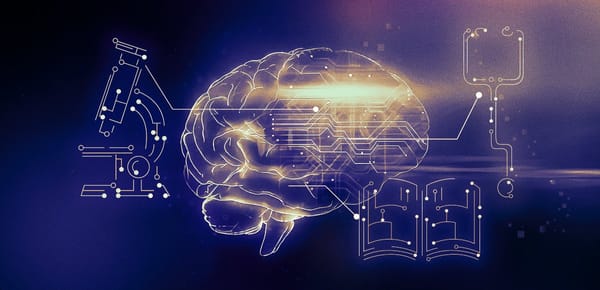The Enigmatic World of Quantum Computing: Unlocking the Future

Quantum computing is one of the most exciting and intriguing fields in modern science and technology. It promises to revolutionize industries, solve complex problems that are currently unsolvable, and transform our understanding of the universe. Despite its potential, quantum computing remains a mysterious and often misunderstood subject. This article aims to unravel the enigma of quantum computing, exploring its principles, potential applications, and the challenges it faces.
The Basics of Quantum Computing
To understand quantum computing, we first need to grasp the fundamental principles of quantum mechanics, the branch of physics that deals with the behavior of particles at the atomic and subatomic levels. Unlike classical physics, which describes the macroscopic world we experience daily, quantum mechanics governs the strange and counterintuitive behaviors of the microscopic world.
Quantum Bits (Qubits)
In classical computing, the basic unit of information is the bit, which can be either a 0 or a 1. Quantum computing, on the other hand, uses quantum bits or qubits. Qubits are not limited to being just 0 or 1; they can exist in a superposition of both states simultaneously. This unique property allows quantum computers to perform many calculations at once, offering a massive leap in computational power.
Superposition
Superposition is a fundamental principle of quantum mechanics. It allows qubits to be in multiple states at the same time. For example, a qubit in superposition can be both 0 and 1 simultaneously. This capability enables quantum computers to process a vast number of possibilities concurrently, vastly outpacing classical computers for specific tasks.
Entanglement
Another key concept in quantum mechanics is entanglement. When qubits become entangled, the state of one qubit becomes dependent on the state of another, no matter how far apart they are. This interconnectedness allows quantum computers to perform complex operations more efficiently. Entanglement is often described as "spooky action at a distance," a term coined by Albert Einstein, who found the phenomenon perplexing.
Quantum Interference
Quantum interference is the process by which the probability amplitudes of quantum states can add together or cancel out. This property is crucial for quantum computing, as it allows for the constructive and destructive interference of quantum states, enabling the manipulation and control of qubits to solve specific problems.
The Power of Quantum Computing
Quantum computing's potential lies in its ability to solve problems that are currently intractable for classical computers. Here are some areas where quantum computing could have a transformative impact:
Cryptography
One of the most well-known applications of quantum computing is in the field of cryptography. Classical encryption methods, such as RSA, rely on the difficulty of factoring large numbers into primes. Quantum computers, using Shor's algorithm, could potentially factor these numbers exponentially faster than classical computers, rendering current encryption methods obsolete. This capability poses both a threat and an opportunity, as it necessitates the development of new, quantum-resistant encryption techniques.
Drug Discovery and Material Science
Quantum computers have the potential to revolutionize drug discovery and material science. Classical computers struggle with simulating the behavior of molecules due to the complexity of quantum interactions. Quantum computers, however, can simulate these interactions more accurately, leading to the discovery of new drugs and materials. This capability could significantly accelerate the development of new medications and advanced materials with unique properties.
Optimization Problems
Many real-world problems, such as supply chain logistics, traffic management, and financial portfolio optimization, involve finding the best solution from a vast number of possibilities. Quantum computers excel at solving optimization problems due to their ability to evaluate multiple possibilities simultaneously. This advantage could lead to more efficient transportation systems, optimized resource allocation, and improved decision-making processes across various industries.
Machine Learning and Artificial Intelligence
Quantum computing holds promise for advancing machine learning and artificial intelligence (AI). Quantum algorithms, such as the quantum version of the support vector machine, have the potential to process and analyze vast amounts of data more efficiently than classical algorithms. This capability could lead to significant breakthroughs in AI, enabling the development of more sophisticated and capable intelligent systems.
The Challenges of Quantum Computing
Despite its potential, quantum computing faces several significant challenges that must be overcome before it can become a practical and widely-used technology.

Quantum Decoherence and Error Correction
One of the biggest challenges in quantum computing is quantum decoherence, the loss of quantum coherence in qubits. Decoherence occurs when qubits interact with their environment, causing them to lose their quantum properties. To combat this issue, researchers are developing quantum error correction techniques, which involve using multiple qubits to detect and correct errors in quantum computations.
Qubit Quality and Scalability
Building high-quality qubits that can maintain their quantum properties for extended periods is a significant challenge. Current quantum computers have a limited number of qubits, and increasing the number of qubits while maintaining their quality is a complex task. Researchers are exploring various approaches, such as superconducting qubits, trapped ions, and topological qubits, to develop scalable and reliable quantum computing systems.
Algorithm Development
While several quantum algorithms have been developed, creating efficient and practical quantum algorithms for real-world applications remains a significant challenge. Researchers are actively working on developing new algorithms that can harness the power of quantum computing for various tasks, from solving complex mathematical problems to optimizing industrial processes.
Hardware and Infrastructure
Building and maintaining quantum computers require specialized hardware and infrastructure. Quantum computers must operate at extremely low temperatures, close to absolute zero, to maintain their quantum properties. This requirement necessitates sophisticated cooling systems and robust infrastructure to support the operation of quantum computers. Additionally, integrating quantum computers with existing classical computing systems poses technical challenges that must be addressed.
Current State of Quantum Computing
While fully functional and large-scale quantum computers are still in development, significant progress has been made in recent years. Several companies, research institutions, and governments are investing heavily in quantum computing research and development.
Major Players in Quantum Computing
- IBM Quantum: IBM is a leading player in the field of quantum computing, offering cloud-based access to its quantum computers through the IBM Quantum Experience. IBM's Quantum Network includes various organizations and universities collaborating on quantum research and development.
- Google Quantum AI: Google made headlines in 2019 when it claimed to have achieved "quantum supremacy" with its Sycamore processor. Google Quantum AI continues to push the boundaries of quantum computing research, focusing on developing practical quantum applications.
- Microsoft Quantum: Microsoft is developing a full-stack quantum computing platform called Azure Quantum. The platform includes quantum hardware, software, and development tools, enabling researchers and developers to explore quantum computing applications.
- D-Wave Systems: D-Wave Systems specializes in quantum annealing, a specific type of quantum computing focused on solving optimization problems. D-Wave's quantum computers are already being used by various organizations for research and practical applications.
- Intel Quantum: Intel is actively involved in quantum computing research, focusing on developing scalable quantum processors. Intel's quantum research efforts include collaborations with academic institutions and research organizations.
Quantum Computing Milestones
- Quantum Supremacy: In 2019, Google's Sycamore processor reportedly achieved quantum supremacy by performing a specific calculation faster than the world's most powerful supercomputers. This milestone demonstrated the potential of quantum computing to outperform classical computers for specific tasks.
- Quantum Teleportation: Researchers have made significant progress in quantum teleportation, the process of transferring quantum information between qubits without physical transfer. Quantum teleportation has potential applications in quantum communication and networking.
- Quantum Simulations: Quantum computers have been used to simulate complex quantum systems, providing insights into phenomena such as high-temperature superconductivity and chemical reactions. These simulations offer valuable information that classical computers cannot easily provide.
- Quantum Cryptography: Advances in quantum cryptography, such as Quantum Key Distribution (QKD), have demonstrated the potential for ultra-secure communication. QKD uses the principles of quantum mechanics to enable secure information exchange, offering a higher level of security compared to classical cryptographic methods.
The Future of Quantum Computing
The future of quantum computing holds immense promise and potential. As researchers continue to make progress in overcoming current challenges, quantum computing is expected to revolutionize various fields and industries.
Potential Impact on Various Industries
- Healthcare and Medicine: Quantum computing could lead to significant advancements in personalized medicine, drug discovery, and genomics. By accurately simulating molecular interactions, quantum computers can expedite the development of new treatments and therapies, leading to more effective and targeted medical interventions.
- Finance: Quantum computing has the potential to transform the financial industry by optimizing trading strategies, improving risk management, and enhancing portfolio optimization. Quantum algorithms can analyze vast amounts of financial data more efficiently, enabling better decision-making and increasing market efficiency.
- Energy: Quantum computing can contribute to the development of more efficient energy systems, such as optimizing power grids, improving battery technology, and enhancing renewable energy sources. Quantum simulations can help design materials with better energy storage and conversion properties, leading to more sustainable and efficient energy solutions.
- Logistics and Supply Chain Management: Quantum computing can optimize logistics and supply chain operations by solving complex routing and scheduling problems. This optimization can lead to more efficient transportation networks, reduced costs, and improved delivery times.
- Artificial Intelligence and Machine Learning: Quantum computing has the potential to revolutionize AI and machine learning by enabling more efficient data processing and complex pattern recognition. Quantum algorithms can enhance the capabilities of AI systems, leading to more advanced and intelligent applications.
Ethical and Societal Implications
As quantum computing advances, it raises ethical and societal questions that must be addressed. The potential for quantum computers to break current encryption methods poses significant security risks. Developing quantum-resistant encryption techniques is crucial to protect sensitive information.
Additionally, the impact of quantum computing on employment and job markets must be considered. While quantum computing can create new opportunities and industries, it may also disrupt existing sectors. Preparing the workforce for these changes and ensuring equitable access to quantum education and training are essential for a smooth transition.
Collaboration and International Efforts
Quantum computing research and development require collaboration across academia, industry, and government. International cooperation is vital to address the challenges and maximize the benefits of quantum computing. Countries and organizations must work together to establish standards, share knowledge, and promote ethical and responsible development of quantum technologies.
Educational Initiatives
To ensure a future workforce capable of harnessing the power of quantum computing, educational initiatives are essential. Universities and institutions are already incorporating quantum computing into their curricula, offering courses and programs to train the next generation of quantum scientists and engineers. Public awareness and outreach programs can also help demystify quantum computing and inspire interest in the field.
Conclusion
Quantum computing is a fascinating and rapidly evolving field with the potential to revolutionize technology and society. While significant challenges remain, the progress made in recent years is promising. As researchers and organizations continue to explore the possibilities of quantum computing, we move closer to unlocking its full potential.
From transforming industries to solving some of the world's most complex problems, quantum computing represents a paradigm shift in our approach to computation and problem-solving. By embracing the principles of quantum mechanics and harnessing the power of qubits, we are poised to enter a new era of technological innovation and discovery. The journey of quantum computing is just beginning, and its future is as boundless and intriguing as the quantum world itself.




